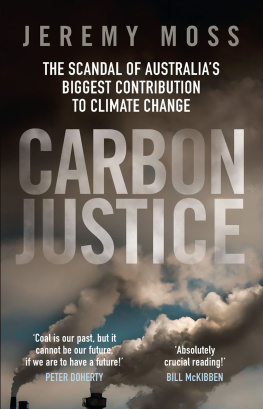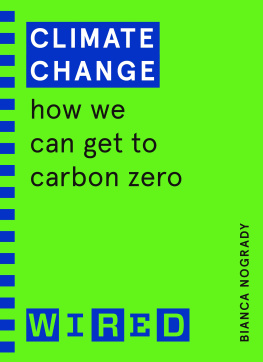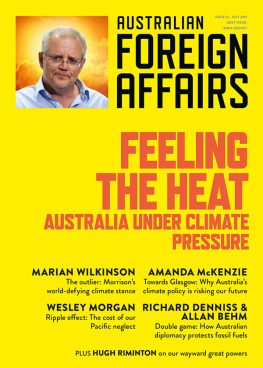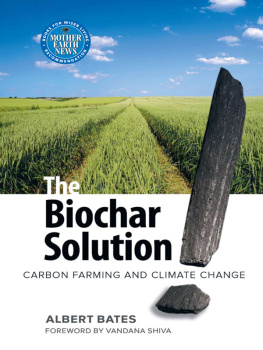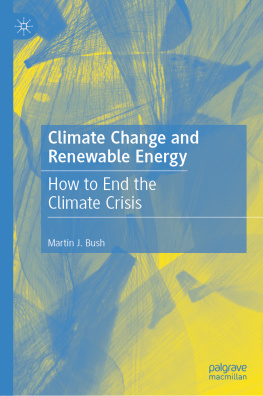Contents
Page List
Guide

CARBON JUSTICE
J EREMY M OSS is professor of political philosophy at the University of New South Wales, Sydney. His main research interests are in political philosophy and applied philosophy. He has written about several dimensions of climate justice, including justice and climate transitions, historical responsibility, complicity and climate harms, and the ethics of fossil fuel exports. His books include Reassessing Egalitarianism, Climate Justice Beyond the State and Climate Change and Justice. He is the recipient of the Eureka Prize for Ethics and the Australasia Association of Philosophy Media Prize.
Also by Jeremy Moss:
Reassessing Egalitarianism
Climate Justice Beyond the State (with Lachlan Umbers)
Climate Change and Justice (Ed.)
A UNSW Press book
Published by
NewSouth Publishing
University of New South Wales Press Ltd
University of New South Wales
Sydney NSW 2052
AUSTRALIA
newsouthpublishing.com
Jeremy Moss 2021
First published 2021
This book is copyright. Apart from any fair dealing for the purpose of private study, research, criticism or review, as permitted under the Copyright Act, no part of this book may be reproduced by any process without written permission. Inquiries should be addressed to the publisher.
 | A catalogue record for this
book is available from the
National Library of Australia |
| ISBN | 9781742237015 (paperback) |
| 9781742238302 (ebook) |
| 9781742239194 (ePDF) |
Internal design Josephine Pajor-Markus
Cover design Luke Causby, Blue Cork
Cover image Rusty Elliott/stock.adobe.com
All reasonable efforts were taken to obtain permission to use copyright material reproduced in this book, but in some cases copyright could not be traced. The author welcomes information in this regard.
NewSouth Publishing sought the most sustainable options available in the printing of this book. It was printed on paper using fibre supplied from plantation or sustainably managed forests, and the cover includes a varnish coating instead of plastic lamination.

CONTENTS
List of figures
Introduction
AUSTRALIAS DIRTY SECRET
Australia is the largest coal exporter in the world. When combined with our exports of gas, this enormous volume of exported fossil fuels produces a correspondingly huge volume of greenhouse gases as those fuels are consumed across the globe. The exports of coal, oil and gas confer on Australia the unwelcome distinction of being one of the worlds largest contributors to climate change. Each year Australias exported emissions from coal, oil and gas are double those of its entire domestic consumption. If the emissions from Australias exports are combined with domestic emissions, Australia contributes around 3 to 4 per cent of global emissions. Calculated in this way, Australia is the sixth-largest emitter in the world, behind China, the USA, India, Russia and Japan. Far from being a tiny contributor to climate change because of a relatively small population, Australia is a key driver of climate change through its fossil fuel exports.
This huge production of fossil fuels is occurring as the world sets calamitous new climate records. According to NASA, the last five years have collectively been the warmest in modern record-keeping.
Yet despite these threats, exported emissions are not officially recognised as part of Australias emissions, and do not feature in our carbon-reduction plans. Australias continued contribution to climate change through the export of fossil fuels is Australias great climate scandal.
The export of such enormous quantities of fossil fuels is made possible by the actions of governments at many levels. But it is not the governments themselves that do the exporting (although one could be forgiven for thinking that is the case). The export of fossil fuels is carried out by private companies, the largest of which are the Australian carbon majors the major fossil fuel producing companies. These companies extract the coal, oil and gas that generate electricity and fuel cars and planes. Many of them are household names Shell, BHP, ExxonMobil and have, in some cases, existed for over 100 years. While governments should be held accountable for their role in enabling the export of fossil fuels, the carbon majors themselves have escaped adequate scrutiny as the actors who do the actual exporting.
The size of the problem created by the carbon majors is immense. In 2018, the volume of emissions produced from the coal extracted by Australias top six coal producers Glencore, BHP, Yancoal, Peabody, Anglo American and Whitehaven produced 551 megatons of CO2-e, more than the whole of Australias domestic emissions for 2018 (534 megatons of CO2-e). There are other, smaller, fossil fuel producers that operate in Australia, but most of the fossil fuels sold come from the top ten.

Many of these companies have also been big emitters for a long time. For instance, over a 15-year period from 2004 to 2018, fossil fuels exported by BHP produced more than 2300 megatons of CO2-e. In 2019 the emissions produced by BHPs products globally were 567 megatons of CO2-e more than was produced by the whole population of Australia!
Some of these companies operating in Australia are part of huge global corporations. Glencore, for instance, had projects in 35 countries and employed 145 000 people in 2019. The top ten Australian carbon majors on which we will focus here collectively make a huge contribution to climate change.
Many of these global corporations also have enormous carbon footprints. Richard Heede, for instance, has found that around 63 per cent of global emissions over the period 1854 to 2010 are traceable to the activities of just 90 large corporations mostly oil, gas, and coal companies, together with seven cement producers. They are not only historically some of the biggest companies on global stock exchanges, but some, like Saudi Aramco or Gazprom, are enormous state-owned companies.
The Australian carbon majors make a huge contribution to climate change, yet their role has escaped proper scrutiny. There has (rightly) been a great deal of discussion about Australias high level of domestic emissions, but the export of fossil fuels by the carbon majors is a far bigger contribution to climate change. The absence of discussion about the carbon majors and exports more generally is even more startling when we realise how long this industry has been a central part of Australias history.
When I began researching Australias contribution to climate change I came across some startling facts about Australias association with coal. Not only did I find that Australia was the worlds largest exporter of coal, but the first export of coal from Australia occurred as far back as 1799. In fact, the ship on which Captain Cook arrived in Australia was a converted coal barge. No sooner had white settlement begun than Australia was establishing its coal industry.

